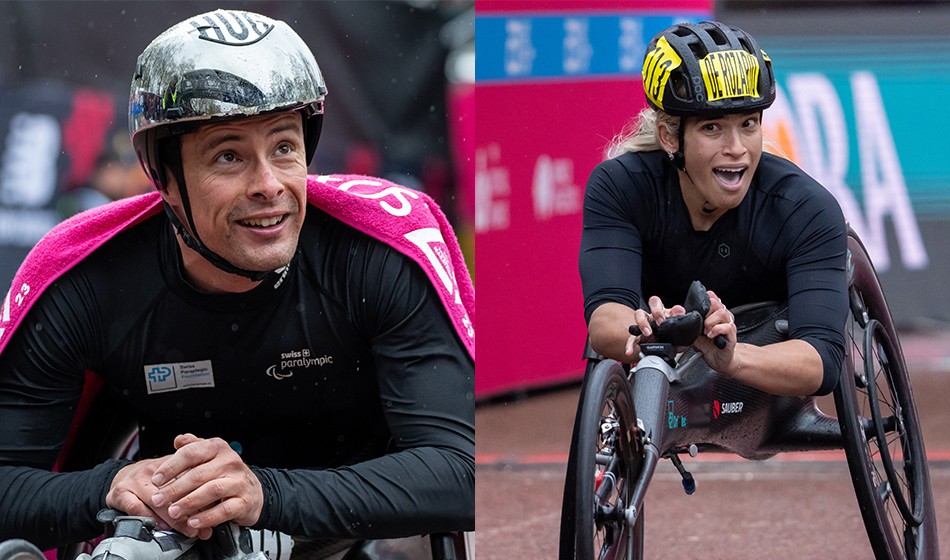TCS London Marathon marked 40th anniversary with first ever champion Gordon Perry being the official starter
The marathons are always viewed as one of the most inclusive events on the athletics calendar, providing athletes outside outside the Paralympics the best opportunity to earn sizeable prize money and coverage on mainstream TV.
This year’s race at the TCS London Marathon marked 40 years since the first wheelchair race took place in 1983, when Gordon Perry, then 28, won the inaugural race.
It’s fitting that Perry was the official starter in an event where the winners now gets £45k. With the overall prize pot being £250k, it’s a sign that attitudes to inclusivity and awareness have come a long way.
Marcel Hug is one athlete who has broken barriers on both in and out of competition.
The least surprising winner of the TCS London Marathon on Sunday (April 23) was the ‘Swiss Bullet’, who smashed his own course record of 1:26:27 with an astonishing 1:23:44.
The fact his winning margin was over six minutes in London wasn’t a shock given he blitzed the field at last week’s Boston Marathon (April 17) by over ten minutes.
Hug, in winning his fourth title on the streets of the British capital, is re-writing the history books and gives the impression he’ll break course records every time he competes.
Eight-time champion David Weir finished fifth, ninth minutes and one second behind Hug.
At the pre-event press conferences, he told AW that, ahead of likely doing his 25th consecutive year of racing at the London Marathon in 2024, that the race has helped so much with publicity and drawn in sponsors.
Weir will turn 44 on June 9 and will be 45 if he competed in what would be an astonishing seventh Paralympics, in Paris next summer.
After yet another London Marathon ticked off the list, he was in a reflective mood and was at his honest best about racing guys 20 years his junior and what the future holds.
“It’s just that my body can’t cope now with the pressure of the high speed,” he said. “My heart rate just won’t go up to that level anymore. I’ve got to sit down with my family and team and make a decision [on retirement]. I don’t want to say it’s the end because next year is a big one.
“Will it be worth going to the Paralympics and not medalling, we’ll see? I’m now going to Switzerland to race on the track for a bit as we’ve got no marathons now until the beginning of September.
On the impact of what coverage of the…
CLICK HERE to Read the Full Original Article at AW…

